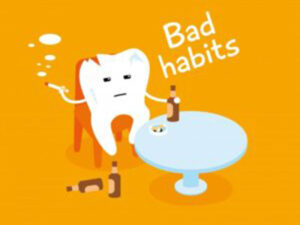Why Not Drink Alcohol After a Tooth Extraction?
It’s understandable to feel carefree after you have a tooth pulled. It may have been causing you some annoyance or pain, depending on the situation. Now the affliction is gone, though, and you’d much rather put the whole experience out of your mind. In fact, you might even want to celebrate getting through the ordeal with a beer, wine, or whiskey.
You’ll need to hold off on the celebratory alcohol, though, as it’s currently harmful to your mouth. If you want to learn more, read this guide on avoiding alcohol after tooth extraction by your Houston dentist!

Why Should You Get a Tooth Extraction?
A patient usually has a tooth extracted for one or several reasons. These include infection, injury, making space for orthodontic treatment, and more. Wisdom tooth removal, for instance, is a tooth extraction performed to remove an impacted third molar. In any event, extraction occurs when it becomes detrimental to preserve the offending tooth.
The procedure is not risky, either, as it uses well-established techniques and methods. Dental practitioners categorize tooth extractions as either ‘simple extractions’ or ‘surgical extractions.’ Simple extractions apply to those teeth that break through the gumline and can be gently removed with dental forceps. On the other hand, surgical extractions work on teeth that break at the gumline or otherwise fail to erupt.
Why is Drinking Alcohol Harmful Post-Extraction?
In essence, alcoholic beverages interfere with treatment recovery.
To be more specific, alcohol would prevent the formation of a much-needed blood clot in the extraction area. As the clot closes, drinking alcohol could lead to a dry socket, a painful condition that slows your recovery. If this happened, you’d need more visits with your local dentist, and you’d likely experience heightened discomfort as well.
Due to these effects, it’s best to avoid alcohol post-extraction. Most dentists recommend waiting between 7-10 days before drinking again to ensure that the wound heals properly.
What You Should Try Instead
Rather than having alcohol, there are practices you should follow so that you recover as smoothly as possible. Try the following:
- Leave the gauze your dentist put in your mouth during treatment for a few hours.
- Avoid rinsing your mouth vigorously, so you don’t dislodge your clot.
- Place a cold compress near the treated area to reduce swelling.
- Eat nutritious, soft foods that won’t aggravate the extraction site.
- Rest during the day after the surgery.
Keep in mind, however, that it isn’t uncommon to experience concerning symptoms following the procedure. If you have encountered anything like vomiting, severe pain, or heavy bleeding in the days after the treatment, call your dentist at your earliest discretion.
It’s tempting to treat your tooth extraction as over and done with following treatment, but it isn’t that simple. It pays to be mindful of your recovery in the days ahead so that you don’t replace one problem with another. So, if you’re eager to put the whole thing behind you, refrain from drinking alcohol — you won’t like the alternative.
About the Author
Dr. Mark Gray is a cosmetic and family dentist practicing in Houston, TX, having earned his Doctorate in Dental Surgery (DDS) from the University of Texas Dental School. He pursues continuing education with the Spear Education Group, in which he is a Faculty Club Member. Belonging to the American Dental Association, Texas Dental Association, and the Greater Houston Dental Society, he truly believes in the power of giving patients winning smiles. He currently practices at his self-titled clinic and can be reached at his website or by phone at 281-493-9395.


